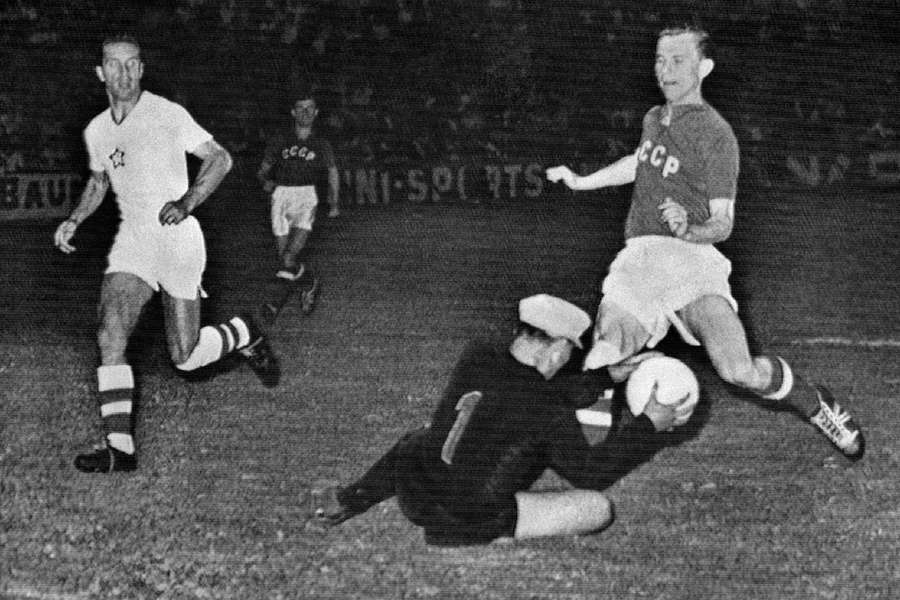The idea of a European Championship wasn't received with much enthusiasm in the late 1950s. Nearly half of the UEFA member countries (16 out of 33) refused to take part in the inaugural tournament.
England, the Federal Republic of Germany, Italy, the Netherlands, Belgium and Switzerland were among the countries that preferred to watch from the sidelines, so France, Norway and Denmark were the only teams from Western and Northern Europe to oppose the former communist bloc teams in what was then called the European Nations Cup.
The format was totally different from today. Teams played round-robin knockout matches to qualify for the mini-final tournament of four teams hosted by France.
The only team to qualify without playing in the opening tournament was the USSR. The draw had set up a meeting with Spain, but General Franco ordered the national team to withdraw from the competition so as not to be forced to fly the Soviet flag on Spanish soil, but also because he feared humiliation after the USSR had crushed Poland 7-1 in a friendly in May 1960.
The two semi-finals on July 6th 1960 pitted Czechoslovakia against the USSR (0-3) in Marseille and France against Yugoslavia (4-5) in Paris, which has so far gone down in history as the match with the most goals scored at a EURO finals tournament.
First final
USSR vs Yugoslavia was a final with important political connotations, after the nation led by Iosip Tito had been excluded from Cominform, the group of countries in the East European communist bloc, 12 years earlier, a decision that created much tension between the two sides.
The final at the Parc des Princes went into extra time (1-1 after 90 minutes), with the USSR winning the first ever European title thanks to a goal in the 113th minute by Viktor Ponedelnik, which remains to this day the latest goal scored in a EURO final.
"I always like to remember that final. After defeating Yugoslavia, the Soviet national team became the first European champions in history. Nobody can forget such glorious moments, be it the public, the football fans or the players themselves. As far as I'm concerned, the victory in the 113th minute was the most important of my entire career. For that goal I have to give credit to a superb cross by our left winger Mikheil Meskhi," said Ponedelnik, the Soviet match-winner, years later.
It is also worth noting that at that time, players were not used to the concept of extra time, for many of them it was the first time they had to play an extra 30 minutes, which combined with the harsh conditions of the pitch took its toll on the fitness of many, especially as changes were not allowed either.
Legendary Yashin
From the USSR team of that period stands out the name of Lev Yashin, the famous goalkeeper who today gives his name to the trophy awarded to the best goalkeeper at the Ballon d'Or gala.
Yashin is himself a winner of the Ballon d'Or, awarded by France Football, but he did not receive it for that 1960 success, but only three years later, becoming the first and so far only goalkeeper in history to win the prestigious trophy.
Santiago Bernabeu, Real Madrid's famous president at the time, tried to buy him immediately after the Euros, but as the communist regime would not allow it, Yashin would end his career with the team he played for for 20 years, Dynamo Moscow.
The USSR players each received $200 as a prize for winning the title and were celebrated at a reception in the Eiffel Tower after the match, where Ponedelnik recalled his meeting with Madrid's president: "He was ready to buy half our team, without hesitation. We avoided the conversation."




